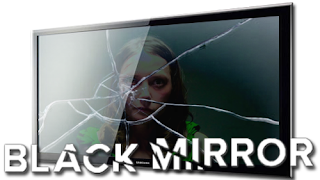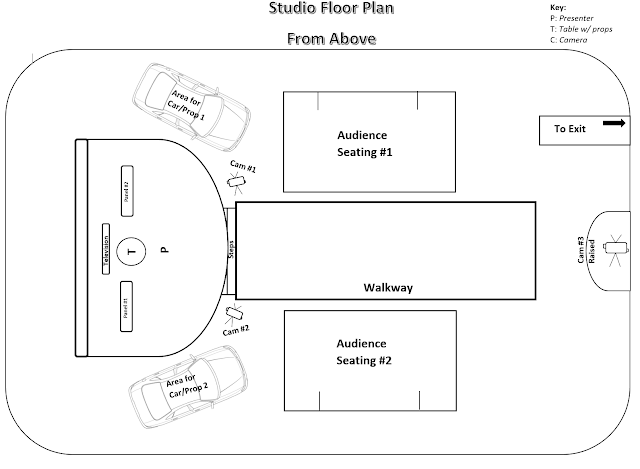Contextual Studies - Jessica Jones Screening + Metaphors
In this lecture we had a screening of the Netflix/Marvel TV Show "Jessica Jones" specifically the premiere episode 'AKA Ladies Night'. The show
 is one of four Marvel Netflix shows based on New York superheroes. Starring Krysten Ritter as Jessica Jones and David Tennant as her incredibly intimidating and unnerving adversary - Kilgrave; A man who has the power to influence anyone within his vicinity to do anything he wants them to do by simply ordering them to do so.
is one of four Marvel Netflix shows based on New York superheroes. Starring Krysten Ritter as Jessica Jones and David Tennant as her incredibly intimidating and unnerving adversary - Kilgrave; A man who has the power to influence anyone within his vicinity to do anything he wants them to do by simply ordering them to do so.
The show also features cameo appearances from Luke Cage (Mike Colter), one of the other 3 superheroes getting the Marvel TV show treatment, as well as Claire Temple (Rosario Dawson), the devil of hells kitchen's personal nurse. The show is based off the Marvel comic by the name of "Alias Investigations" (The name of Jones' PI company), it was the first in a series of Marvel MAG comics, marking a darker, more mature approach to comic book storytelling, dealing with sensitive topics such as abuse, sex, drugs and even rape.
Metaphors & Meanings
What is a metaphor?
- Traditionally in literature, a figure of speech in which a word or phrase makes an implicit, implied or hidden comparison between two things that appear unrelated but share some common characteristics.
- Shakespeare's "All the world's a stage..."
- A creative means to stimulate an audience by getting them to think in other ways.
Metaphor or allegory? Allusion or Analogy?
- Allegory - an extended or complex metaphor, or connected series of metaphors.
- An allegory usually has TWO meanings: literal and symbolic (or metaphorical).
- Alien is regarded as a feminist/Freudian allegory, using visual sexual metaphors.
- Allusion - an indirect or passsing reference, usually with no metaphorical intent.
- Often used as homage or not to a related show or film or writer/directors' inspirations.
 - Analogy - a literal comparison without further meaning (a metaphor uses analogy with greater meaning)
- Analogy - a literal comparison without further meaning (a metaphor uses analogy with greater meaning)
- Forrest Gump's "Life is like a box of chocolates, you never now what you're gonna get."
Metaphors in TV and Film
 e.g. Rape and PTSD, Child abuse, addiction; drugs and alcohol + externalising character's interior trauma and struggle through the use of superpowers.
e.g. Rape and PTSD, Child abuse, addiction; drugs and alcohol + externalising character's interior trauma and struggle through the use of superpowers.
Static vs Dynamic Metaphor
The show also features cameo appearances from Luke Cage (Mike Colter), one of the other 3 superheroes getting the Marvel TV show treatment, as well as Claire Temple (Rosario Dawson), the devil of hells kitchen's personal nurse. The show is based off the Marvel comic by the name of "Alias Investigations" (The name of Jones' PI company), it was the first in a series of Marvel MAG comics, marking a darker, more mature approach to comic book storytelling, dealing with sensitive topics such as abuse, sex, drugs and even rape.
Metaphors & Meanings
What is a metaphor?
- Traditionally in literature, a figure of speech in which a word or phrase makes an implicit, implied or hidden comparison between two things that appear unrelated but share some common characteristics.
- Shakespeare's "All the world's a stage..."
- A creative means to stimulate an audience by getting them to think in other ways.
Metaphor or allegory? Allusion or Analogy?
- Allegory - an extended or complex metaphor, or connected series of metaphors.
- An allegory usually has TWO meanings: literal and symbolic (or metaphorical).
- Alien is regarded as a feminist/Freudian allegory, using visual sexual metaphors.
- Allusion - an indirect or passsing reference, usually with no metaphorical intent.
- Often used as homage or not to a related show or film or writer/directors' inspirations.
- Forrest Gump's "Life is like a box of chocolates, you never now what you're gonna get."
Metaphors in TV and Film
- While writers may use verbal or literary metaphors, most metaphors in film & TV will be visual
- Metaphors generally need to be constructed of familiar visual symbols and references, and cannot be overly complex.
Jessica Jones
- Based on Marvel comic book character
- Although grounded in realism, TV series acknowledges in-world superpowers, Marvel Universe and comic book roots.
- Created and produced by an entirely female production team.
Metaphors in Jessica Jones
- Dominant narrative theme is power and control.
- Dominant narrative metaphors illuminate theme of power and control.
Abuse as metaphor
Kilgrave's sexual abuse/control of Jessica is both explicit and literal in original comic.
- TV series uses Kilgrave's mind control and Jessica's PTSD as broader metaphors for abusive relationships.
- "We didn't want to tackle it as an 'issue'. Nobody wants to be preached to and I have no interest in doing any preaching, so it was really just informing her character, why she makes the choices she makes." (Director of Premiere Episode)
TV series expands abuse metaphors further than source material.
- Jessica's friend Trish (a former TV child star) is a victim of childhood abuse (physical and drugs) by showbiz mother.
- Kilgrave's new backstory reveals him to be a victim of abusive childhood medical experiments.
- Both characters become 'control freaks' in adulthood, although with very different agendas.
Addiction as Metaphor
Addiction/substance abuse becomes a metaphor for both control and loss of control.
- Jessica's alcohol abuse as coping mechanism.
- Former soldier Simpson abuses 'red pills' that give him superpower.
- Jessica's addict friend is made to stalk her by Kilgrave in return for drugs.
Surveillance as Metaphor
Stalking and surveillance (voyeurism) are also used as metaphors for abuse and control;
- Jessica's surveillance work is an expression of her need to control.
- Kilgrave stalks Jessica by surveillance and, when discovered, forces her to self-surveil by sending selfies.
- The series uses recurring images and examples of surveillance to reinforce control metaphor.
Superpowers as Metaphor
- Superpowers are not just a physical manifestation of control, but metaphor for 'the other'.
- Mrs Eastman's attempt to kill Jessica is motivated both by revenge and fear of 'the gifted' (or 'other').
- Marvel's X-Men have been interpreted as a metaphor/allegory for female empowerment.
Visual Metaphor in Jessica Jones
- The cockroach scenes that bookend Episode 2 are examples of visual metaphor.
- At the beginning of episode, Jessica looks at a cockroach while thinking about Kilgrave's capacity for survival.
- By the end of the episode, Jessica has reconciled to confront Kilgrave, and symbolically crushes the cockroach in the sink.
Static vs Dynamic Metaphor
- The cockroach scenes are examples of static metaphor
- A static metaphor is a metaphor whose meaning is obvious and constant (like using red to signify sexuality). It usually reflects one characteristics and one character.
- A dynamic metaphor is one that provides new information as the narrative continues. It is often shared with other characters and/ or found in new situations or locations.
- The use of addiction (alcohol/drugs/medication) is an example of a dynamic metaphor.
Why filmmakers might use metaphors...
- Aesthetic/artistic - to provide another level of meaning beyond the literal or superficial.
- Freudian/psychological - to provide an alternative means of interpretation beyond the conscious.
- Political - to allow filmmakers to tackle a difficult or controversial subject within allegorical framework. (e.g. Classic examples include the 60s Western as metaphor/allegory for the Vietnam War, and sci-fi as metaphor/allegory for racism/sexuality etc.



Comments
Post a Comment